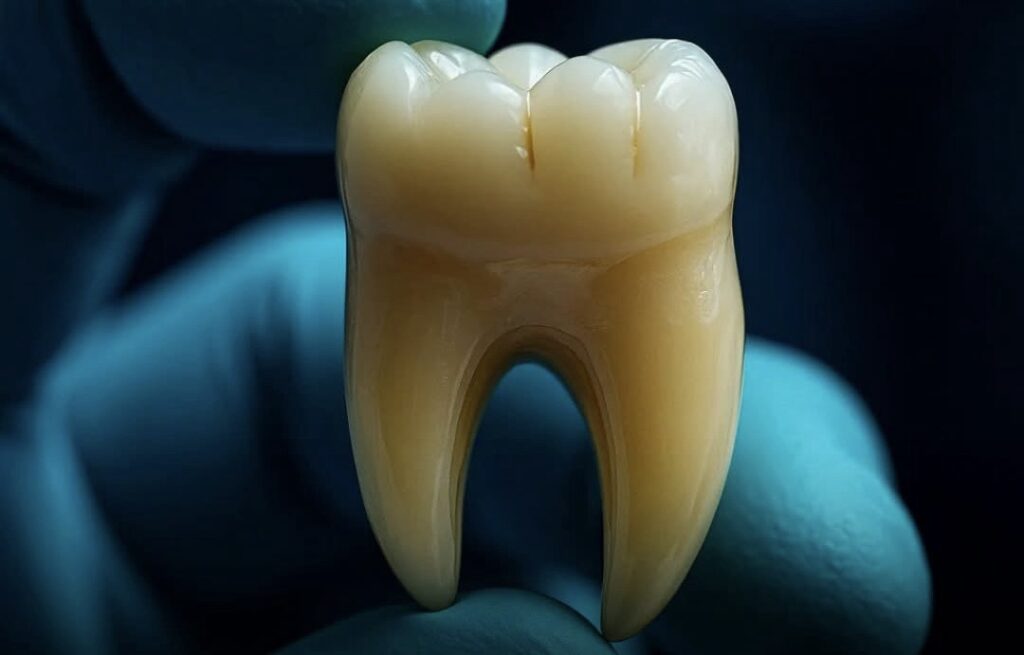In a groundbreaking leap for dental science and regenerative medicine, scientists have successfully grown fully formed human teeth in a laboratory setting for the first time ever.
Unlike traditional dental treatments that rely on artificial materials like porcelain or metal. Offering an exciting future where real, living teeth can replace damaged or missing ones.
This remarkable achievement was led by researchers at King’s College London, who have spent years studying how human teeth naturally develop. By mimicking these biological processes in a controlled lab environment, the team was able to stimulate real tooth growth from living human tissue.
These lab-grown human teeth are biologically compatible, longer-lasting, and capable of natural self-repair.
Something no current dental implant or prosthetic can offer. The key breakthrough involves the use of a new biomaterial that enables patient-derived cells to gradually communicate, just as they would during natural tooth formation inside the body. This cell-to-cell signaling is crucial to initiating the growth of real enamel, dentin, and other tooth structures.

Dr. Paul Sharpe, who led the research, explained that the process opens the possibility of not only growing replacement teeth in a lab but potentially regenerating teeth directly inside a patient’s mouth. “We’re now closer than ever to offering a real alternative to dentures, fillings, or metal implants,” he said.
The implications of this breakthrough are enormous. Instead of relying on synthetic dental materials, future patients could regrow a natural tooth that functions just like the original—both structurally and biologically. The tooth is grown from the patient’s own cells. The risk of rejection is minimal, and integration with the jawbone is seamless.
This development is part of a broader movement in regenerative medicine. Replacing damaged body parts with lab-grown, natural alternatives. In the case of dentistry, the future may no longer involve drills, crowns, or removable dentures—but rather fully functional, self-regenerating teeth.
It may still take several years before this innovation becomes widely available to the public. Clinical trials are expected to begin soon, and researchers remain optimistic.
With continued advancements, losing a tooth may no longer mean living with a synthetic replacement—but simply growing a new one.



